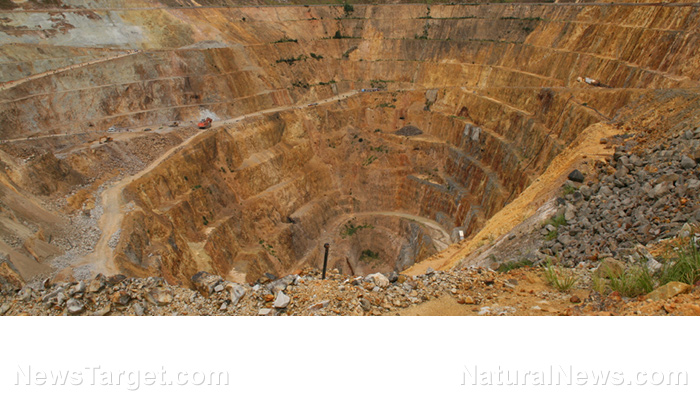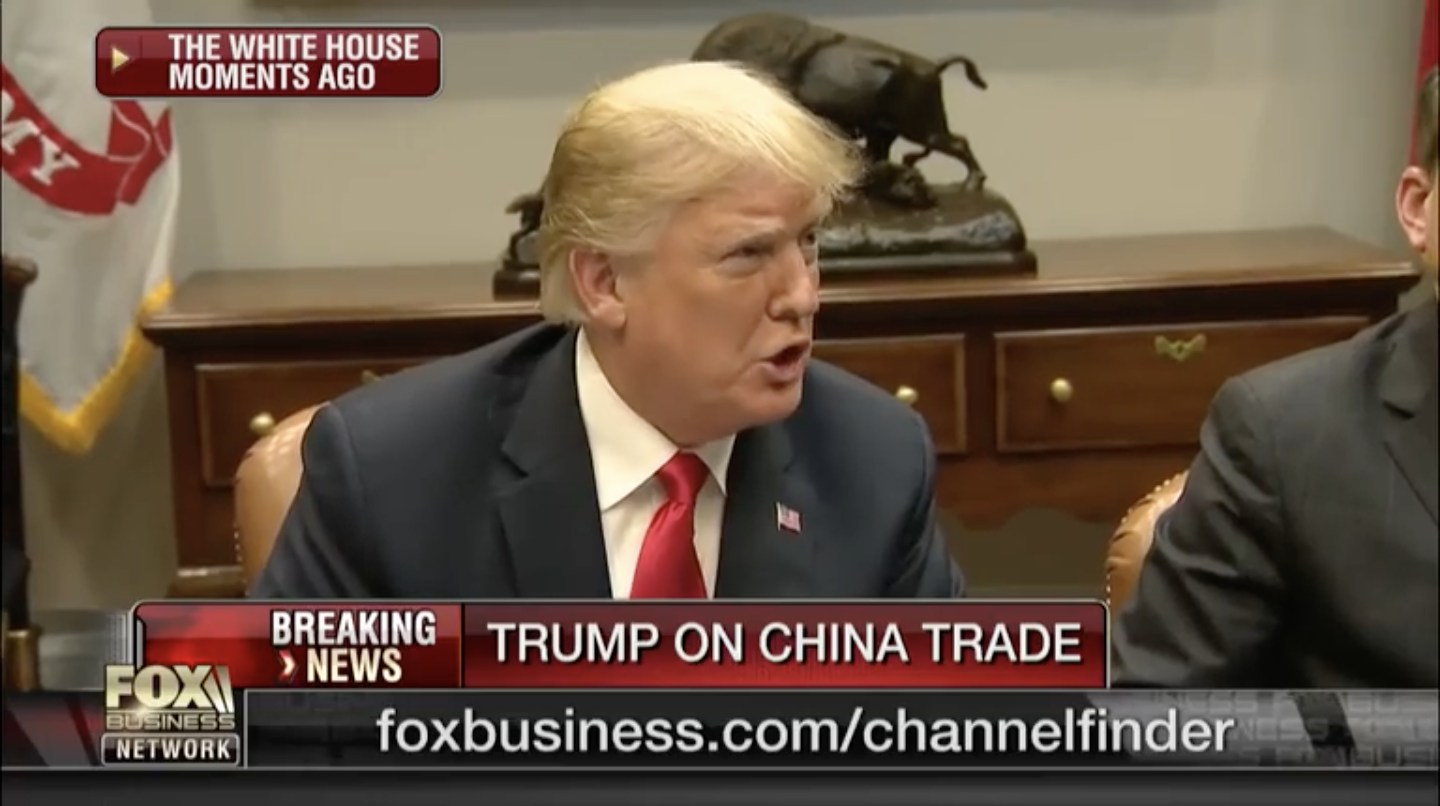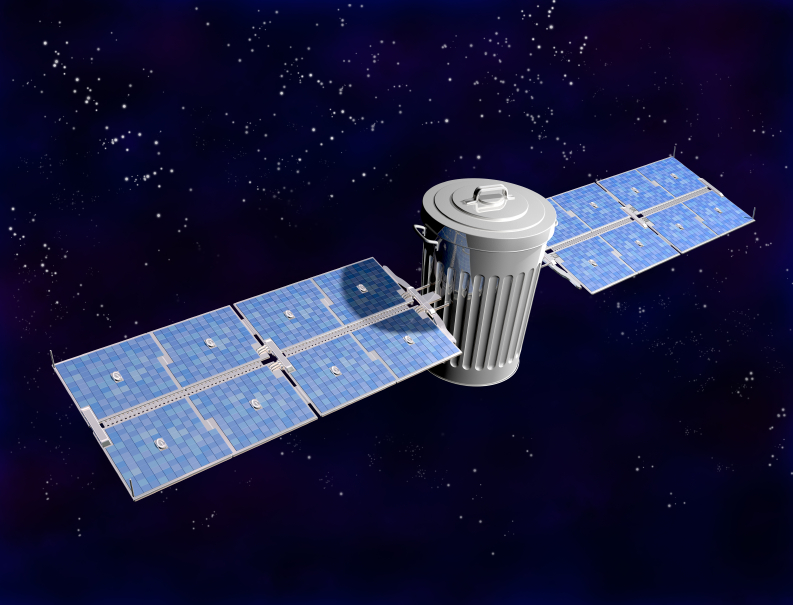Trump’s critical Ukraine minerals deal nears completion
04/18/2025 / By Cassie B.

- The U.S. is finalizing a deal with Ukraine for privileged access to its critical minerals, oil, and gas.
- The agreement reflects Trump’s transactional policy, demanding repayment via resource extraction for past U.S. aid.
- Ukraine’s rare earth deposits help counter China’s monopoly, securing U.S. supply chains and tech dominance.
- Tensions flared in February after Trump criticized Zelenskyy, briefly halting U.S. intelligence sharing.
- The deal introduces conditions for U.S. aid, diverging from Biden’s unconditional support and emphasizing American interests.
President Donald Trump’s administration is nearing finalization of a minerals agreement with Ukraine that would grant the United States privileged access to the nation’s critical minerals, oil, and gas assets. The agreement, expected to be signed as early as April 26, is the culmination of prolonged negotiations that hit a rocky patch in February when a meeting between Trump and Ukrainian President Volodymyr Zelenskyy devolved into a public dispute.
The accord represents a hallmark of Trump’s transactional foreign policy, emphasizing America’s demand for reciprocity in military aid while reducing reliance on China for essential minerals.
At the core of the negotiation lies Trump’s insistence that Ukraine repay a portion of the billions in American wartime assistance through joint development of its natural resources. “We have a minerals deal, which I guess is going to be signed on Thursday… next Thursday? Soon,” Trump said on Thursday.
According to Treasury Secretary Scott Bessent, the pact is “substantially what we agreed on previously,” including an 80-page framework outlined in prior discussions. The agreement will establish a joint fund for Ukraine’s reconstruction tied to revenues from Ukrainian mineral extraction.
Ukraine’s deposits of rare earth elements—critical for defense systems, electronics, and renewable energy—offer a counter to Chinese monopolies on these materials. The deal positions the United States to diversify its supply chain, ensuring technological dominance while mitigating the risk of economic coercion from adversaries.
Shifting from forgiveness to reciprocity
Contrasting sharply with former President Joe Biden’s approach of unconditional aid, Trump’s team has made repayment a prerequisite. Unlike past transfers of wartime assistance that yielded no tangible return, this deal framework demands concrete deliverables: partnership in resource extraction and infrastructure projects.
The February meeting between Trump and Zelenskyy had soured after Trump rebuked Zelenskyy’s reluctance to pursue peace talks with Russia. According to attendees, tensions rose when Trump accused the Ukrainian leader of prolonging the conflict. This acrimony briefly halted U.S. intelligence sharing but galvanized Kyiv to reopen dialogue—a pragmatic acknowledgment of Ukraine’s dependence on U.S. hardware and loans.
While Zelenskyy publicly characterized the signing of an initial memorandum of intent positively, internal Ukrainian sentiment remains divided. “I do think that for us as Ukrainians, it feels a little bit like another country is using our vulnerability,” stated Parliament Member Inna Sovsun.
Nonetheless, the memorandum’s passage requires parliamentary ratification. Even skeptical officials acknowledge potential benefits: the joint investment fund could accelerate reconstruction of war-ravaged infrastructure and attract private-sector U.S. investment.
Countering China in the global resource race
The geopolitical stakes are immense. U.S. dependence on Chinese rare earth production has long been a diplomatic liability. China currently dominates global refining of minerals crucial for missile guidance systems and semiconductors. The Ukraine deal seeks to erode that advantage by funneling American capital into Ukrainian mines and export infrastructure—aligning with Trump’s broader “energy dominance” doctrine.
This week’s executive order on critical mineral tariffs further underscores the administration’s resolve. By penalizing supplies from unfriendly nations, Trump is creating financial incentives for allies like Ukraine to partner exclusively with the United States.
The Ukraine minerals deal crystallizes Trump’s vision for foreign policy: every dollar spent abroad must yield tangible value for America’s security and economy. It carries risk for both nations—Zelenskyy faces domestic backlash over resource concessions, while Trump could alienate allies by prioritizing profit over alliance loyalty. Yet if successful, the pact will set a precedent: American aid comes with strings attached, ensuring that U.S. interests are always first.
Sources for this article include:
Submit a correction >>
Tagged Under:
future tech, globalism, minerals deal, progress, rare earth minerals, supply chain, Trump, Ukraine, WWIII, Zelenskyy
This article may contain statements that reflect the opinion of the author
RECENT NEWS & ARTICLES
COPYRIGHT © 2017 FUTURETECH.NEWS
All content posted on this site is protected under Free Speech. FutureTech.news is not responsible for content written by contributing authors. The information on this site is provided for educational and entertainment purposes only. It is not intended as a substitute for professional advice of any kind. FutureTech.news assumes no responsibility for the use or misuse of this material. All trademarks, registered trademarks and service marks mentioned on this site are the property of their respective owners.


















